Poland: on the ruins of three empires. Russian answer to the Polish question. 2 part
A. Mitskevich, “Pan Tadeusz”
In Krakow, the Germans were dancing in the hall ...
Pole mustache moved - all run away ...
Polish folk
“From the German point of view, it was impossible to resolve the Polish question well: there could only be a more or less bad solution” (1). With these words of the German Chancellor T. Betman-Golvega it is quite possible to characterize the attitude towards Poland and the Poles not only in Germany, but also in Austria and Russia. In the Russian and Austrian empires, the powers that be, not worse than the Germans, understood that a cardinal solution of the Polish question would hardly endow them with a new ally — they would simply get a new headache on the border instead of an internal political problem.
Let us give the word to another “retired” Chancellor - Prussian, Bernhard von Bülow: “We have artificially created and raised a mortal enemy on our eastern border, who has taken away vast and rich areas that have been German for more than a century, robbing and raping Germans and, as a mercenary of France, ready to strangle us ”(2).
Yes, von Bülow wrote this after the war and after the creation of the puppet Polish Kingdom - about the Polish "searchlights" of the 1916 model of the year, the author of which was T. Betman-Golweg. However, his words fully reflect the positions of the Prussian, as well as Russian and Austrian conservative circles in the Polish question.
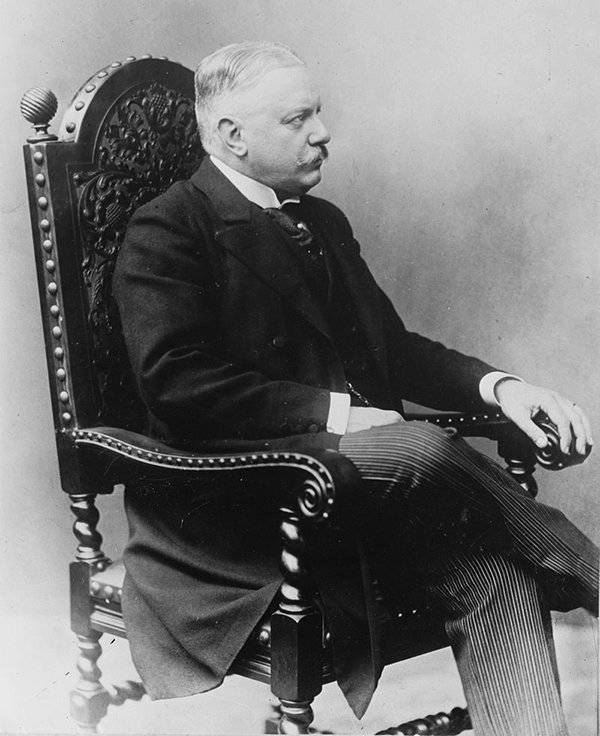
Bernhard von Bülow
It was Poland, with all its human and material losses, became one of the winners of world war. She won the main thing - independence. Although the Poles themselves, if the speech goes “beyond Resignation”, they will rather recall the “miracle on the Vistula” - a victory in the fight against Red Russia than an unexpected political combination according to the results of a four-year confrontation between the great powers.
And they are unlikely to clarify that it was not least realized at the suggestion of the President of the North American States (USA) Woodrow Wilson, who was fascinated by the ideas of “national self-determination”. In the presentation of this outstanding politician, they were inextricably linked with such concepts as “trust in each other, the universality of law”, capable of becoming the pillar of the world order (3).
Of course, Wilson was by no means the first to say that the Poles, more than other “young” European nations, were entitled to consider themselves to be a nation, but it was with his submission that Entente diplomats actually brought the “Polish question” to the international level. Impressed by the extreme bitterness of the war, the head of the White House was ready to destroy both despotic empires and create new democratic powers.
However, even with such a romanticism, Wilson — above all, a pragmatist, and an American pragmatist — he looked at Europe like the Russian grand dukes in Germany — it’s better to keep it fragmented, and let the local monarchs continue to play their toy kingdoms.
As you can see, it is not by chance that the epigraph to the archive of Colonel E.M. Khauz, who exhaustively reveals the behind-the-scenes mechanisms of the American politics of that era, chose such a characteristic confession: “If any of the old diplomats heard us, he would faint” (4).
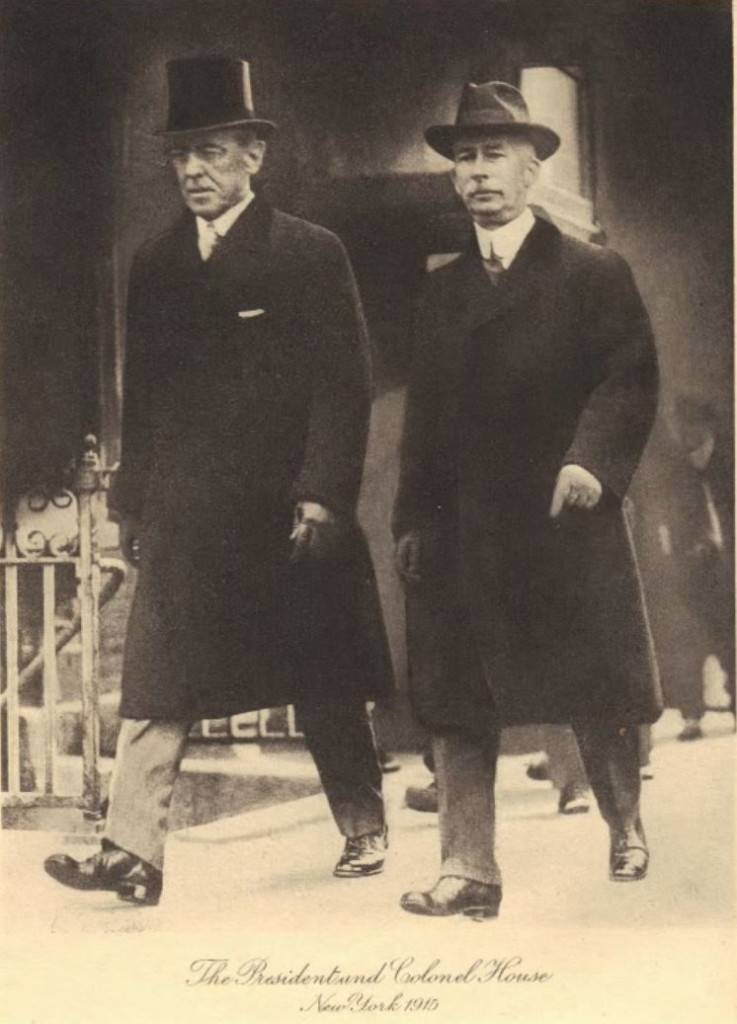
US President Woodrow Wilson and his closest aide Colonel E.M. House
The United States, of course, is not France, and they have no direct need to drive a "Polish" wedge between Russia and Germany. But why not weaken, in the long run, of course, the two potentially powerful European powers? By the way, the grand-ducal appeal, by which the Russians actually initiated the present resolution of the Polish question, became a sensation not only in Europe, but also in the States. But at that time, to ordinary Americans, European affairs were generally frankly indifferent.
On the eve of the European war, the maximum that the boldest Polish politicians could count on was relative autonomy, and for each of the three parts, and some territorial increments. Of course, only one Poland “from sea to sea” could arrange the radicals, but even the violent Yuzef Pilsudski was not ready to demand “everything at once”.
[i] Józef Pilsudski and his legionaries in the Austrian trenches on the Russian front
The creators of his legend gladly quote the leader of the Social Revolutionaries, Viktor Chernov, according to whom Pilsudski predicted defeat in a world war, first the Russian and then the German Empire (5). Pilsudski really counted on such a sequence in the outcome of the war, soberly assessing the economic and political resource of the opponents.
However, there was no shortage of the most paradoxical forecasts on the eve of the world massacre. And let's not forget that the author of the memoirs, as well as the author of the forecast, is a great master of political bluff, moreover, when Chernov wrote his memoirs, he was almost “one hundred percent,” if not financially, dependent on head of the Polish state ".
Of course, an honest revolutionary such as Chernov can in no way be accused of trying to rewrite memoirs in complimentary tones in relation to the former political opponent. And yet, the main thing is that the leader of the Polish radicals made his prediction for the sole purpose of actually calling the Poles under the banner of the Habsburgs and the Hohenzollerns to fight the Russian empire, that is, the opponent whom he considered the main thing for the independent Polish-Lithuanian Commonwealth.
However, during all four years of the war, the majority of Poles had to fight not for Poland, but only for the interests of those powers, which they rightfully considered as their enslavers. It is not by chance that the Polish soldiers displayed true patriotism and much more heroism in the national armed forces that were forming closer to the end of the war in France than in the armies of the three empires.
Even the call of the Poles both to the Russian and the Austrian armies was conducted according to “reduced quotas”, which, by the way, ensured the success of the first call, so surprised the mobilization commissions. In Germany, the initial call in the Polish lands also passed without complications, but, starting from the summer of 1915, they tried not to send Poles to the western front, knowing full well about their sympathies for the French.
And at the end of 1916, the Austro-German draft of the additional draft in the occupied Polish lands failed miserably. The widely proclaimed proclamation of an independent kingdom in the territories that were part of the Russian Empire before the war did not save it - in our time it could be called virtual. Had the slightest opportunity been there, the 800 of thousands of Polish volunteers, on whom General Ludendorff had so much hoped, would have immediately fallen into the ranks of the Polish Army, especially since it was formed in France.
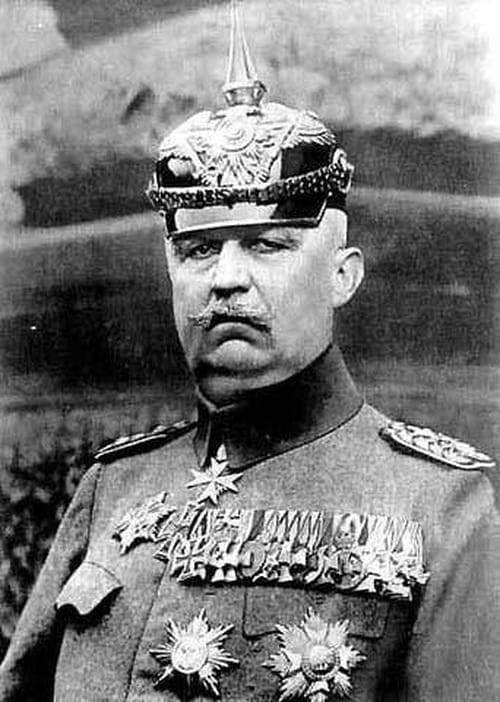
Erich von Ludendorff - a general who never became a field marshal
However, in the patriotic outburst of August 1914, Republican France also did not dare to demand a united Poland with the same ardor as it demanded the return of Alsace and Lorraine. To repeat, at first for Poland it was not even about broad autonomy, not like real independence.
In fact, the Polish question, as one of the sick issues of Europe, which is called "matured", even if only implicitly. And not only in Russia, but also in Germany, and in Austria-Hungary. Strangely enough, it was Russian diplomacy, which did not differ in special efficiency, and besides the tsarist bureaucracy, in the Polish question managed to play "ahead of the curve."
It was at the suggestion of the diplomats that the famous Grand Duke's Appeal to the Poles was issued. At the same time, the task was set at the expense of the propaganda effect to extract the maximum immediate benefit, of course, for the Russian army, and not for the Poles and not for Poland. With further had to deal later - after the victory. The reasons for the fact that dividends from the "Appeal" could not be obtained - only and exclusively in the unfortunate outcome of the war for Russia.
Poland, if we talk about all its three parts, in the 1914 year, in terms of economic development, political culture, and national identity, was no less than, for example, Romania, Serbia, or Bulgaria. But those were already independent, although, admittedly, they did not have any historical experience of their own statehood, such as Poland.
In addition, Poland had much more chances for international recognition even before the start of World War II than any other “new” state that could be formed on the “fragments of empires”.
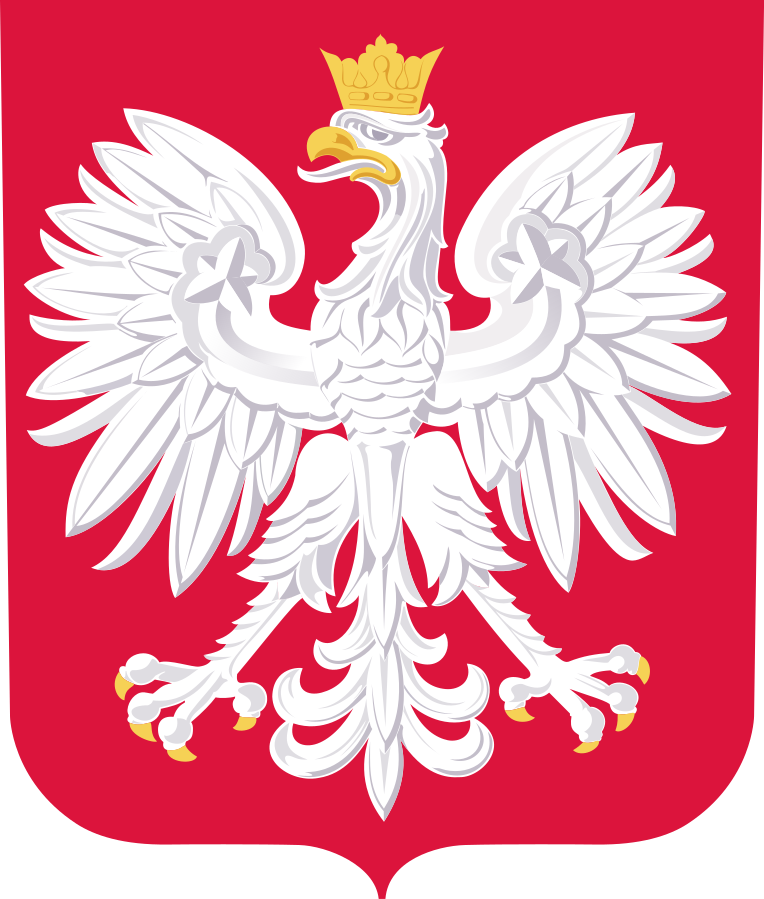
We must not forget that on the eve of the war the Central Powers did not consider any projects to create new independent countries (even from Russian lands or in the Balkans), then in the Entente countries the large-scale European redivision was taken for granted if they won. In Russia, by the way, too, and Poland, with this redistribution, was given the place of some kind of Western Slavic outpost.
After the legendary “Rebellion” 1863, the Polish question on the territory of the empires - participants of the three sections, seemed to have been permanently frozen. But another cruel blow to national identity turned into a kind of stimulus for the Polish renaissance.
The great reforms in Russia, the transformations in the dual Danube empire, even if forced after the defeat in the 1866 war, the industrial growth in a united Germany, all these factors together simply could not but affect the situation of Poland. Recovery, and then the rise of the economy, logically accompany the cultural renaissance that surprised the world on the Polish lands of the three empires. The names of Henryk Senkevich, Boleslav Prus and Jan Ignacy Paderewski did not just know the whole world - he bowed to them.
At the beginning of the 20th century in St. Petersburg, Berlin and Vienna, both hypothetically and practically considered numerous combinations for a revived Poland. And at least three of them could be realized if the world war ended with the victory of the Central Powers, or Russia did not fall out of the Entente.
So, the Romanovs, for the sake of propriety, would have put some of the great princes on the Polish throne. Instead of two thrones, the Habsburgs simply tried to settle in on three at once, without experiencing any shortage of archdukes for this case. And the Prussian Hohenzollerns - they were ready to make happy the Polish subjects of one of the “younger” colleagues in the German Empire - the Bavarian Wittelsbach or Saxon Wettin.
A huge role in the fact that the position and perception of the divided into two countries and its people in the world changed rapidly played historical ties of Poland with France. The French interest in Poland, of course, was by no means disinterested, besides Paris was attracted by the prospect of creating a democratic (and how else?) Laying between the three empires.
Yes, at that time Russia was an ally of France, but the concept of a “buffer state”, albeit in a not so crude form as later, was already used by diplomats at the beginning of the 20th century. The Republican politicians of the Third Republic cannot but be given credit for the ability to maneuver between the “new monarchist ally” and the “old revolutionary friends”.
The rapid strengthening of the positions of the United States of North America was also in favor of restoring independent Poland. After the Americans split the nut under Spain and then sensibly mediated the reconciliation of Russia and Japan, they were tried to win over to their side both the Entente and the Central Powers. However, even in 1914, no sensible politician could have imagined that instead of coronation in Krakow or Warsaw of one of the European princes, it was the White House that would dictate the conditions for the re-establishment of Poland.
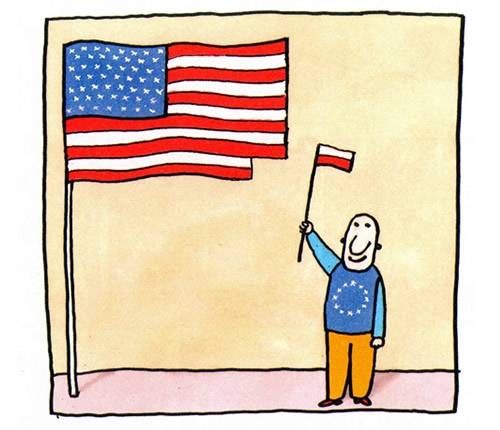
But the main incentive for Polish independence in the good European tradition was the revolution - in Russia, and then in Germany. The Russian “February bureaucracy” at least managed to save face, endowing the Polish brothers with autonomy, was not allowed to the Prussians, and they were simply presented with a “Poznan bill” at Versailles.
And at the same time, they “made a grip” in Gdansk of the originally free Danzig, and cut a small part of East Prussia to the new estate of Pan Pilsudski. After that, the appetite of the head of the Polish state immediately increased, and he went to war in Lithuania, Belarus and Red Russia. Even quiet Czechs with Slovaks got it, from whom the Poles wanted to take away Tyosha Silesia. But all this is already a completely different stage in European history.
Notes.
1. T. Betman-Golweg, “Reflections on War”, Beachtungen zum Weltkriege, Bd. II, S.91
2. B.fon Bulow, Memoirs, M., 1935 g., P.488
3. Quoted by Clements K. The Presidency of Woodrow Wilson, Kansas, 1992, p.73
4. Ibid., P.28
5. V.M. Chernov, Before the storm. Memories, memoirs. Minsk, 2004, p. 294-295.
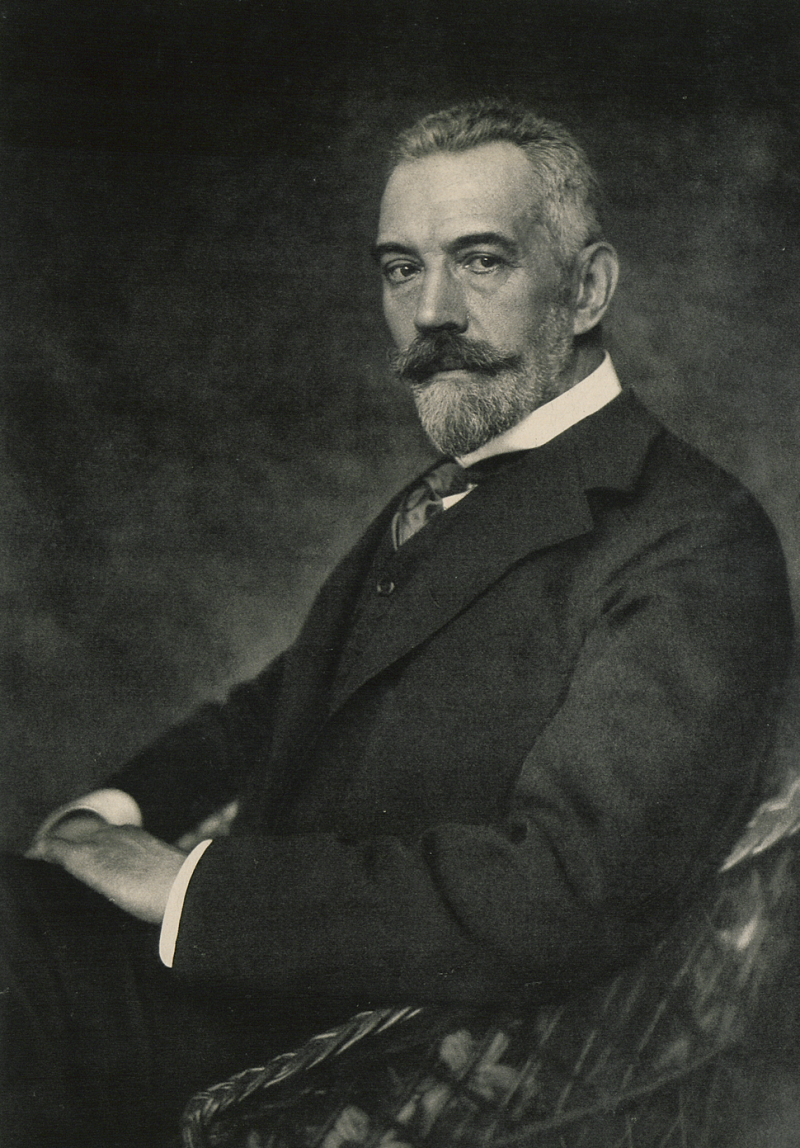
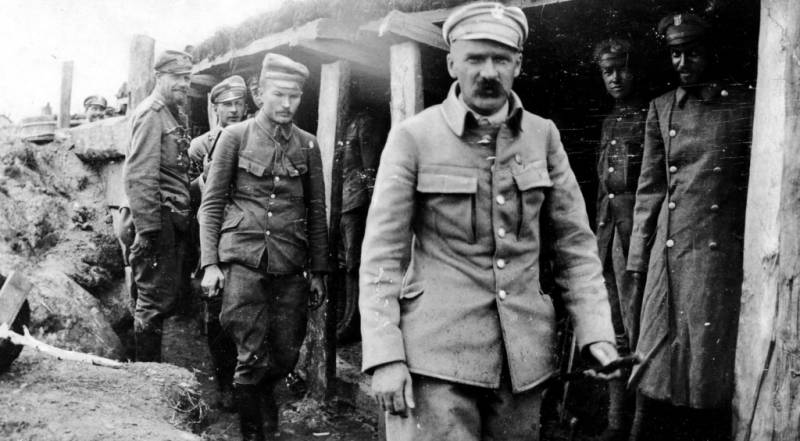
Information